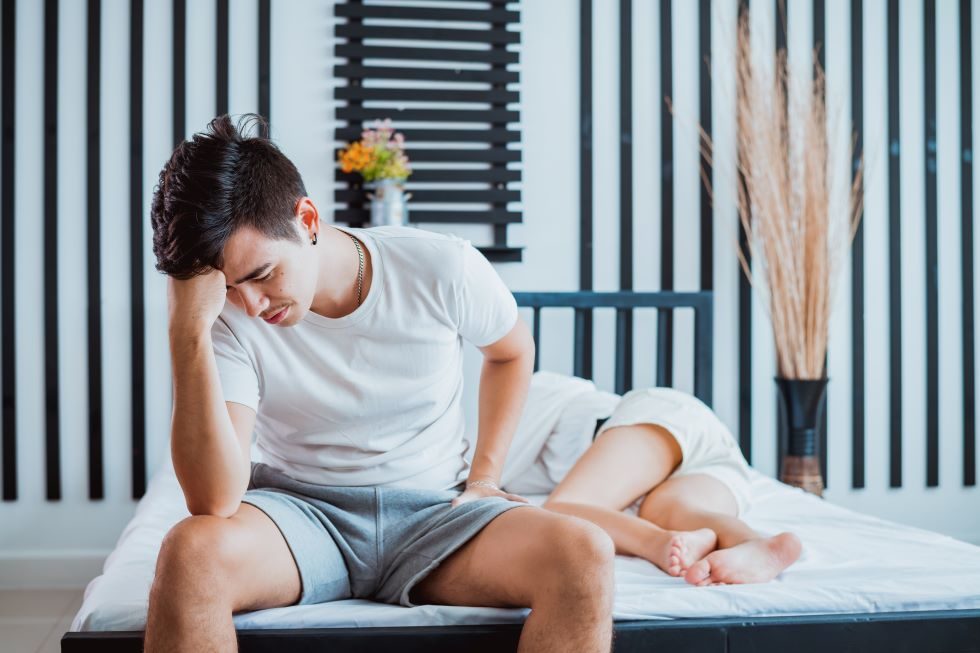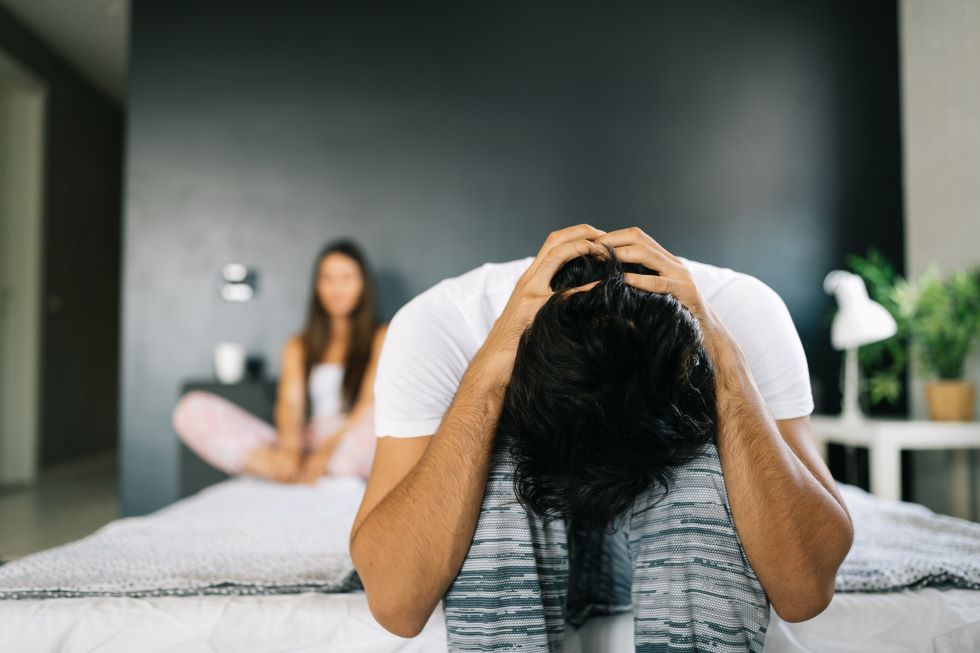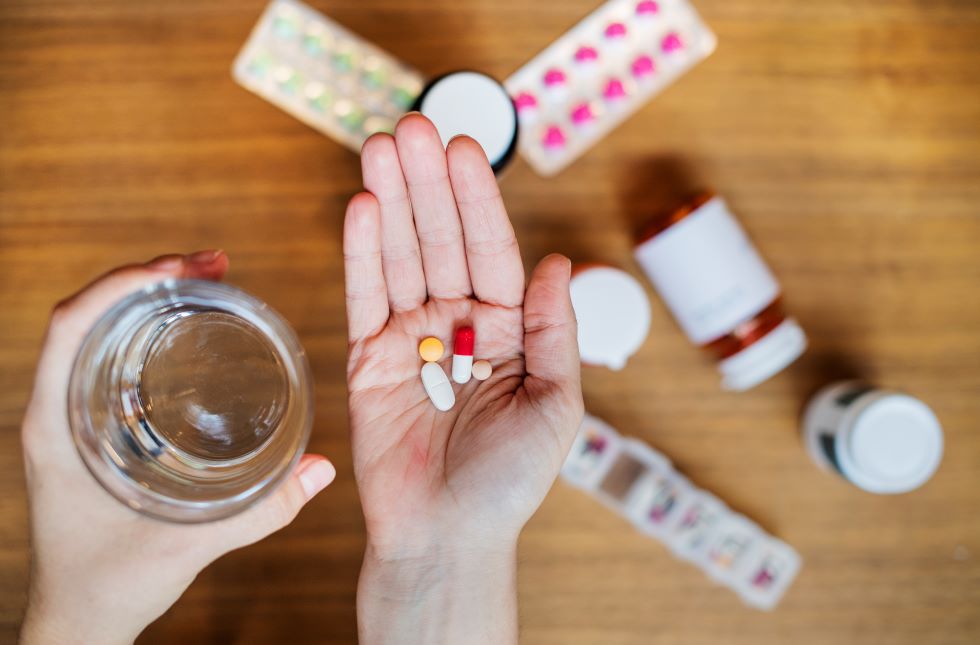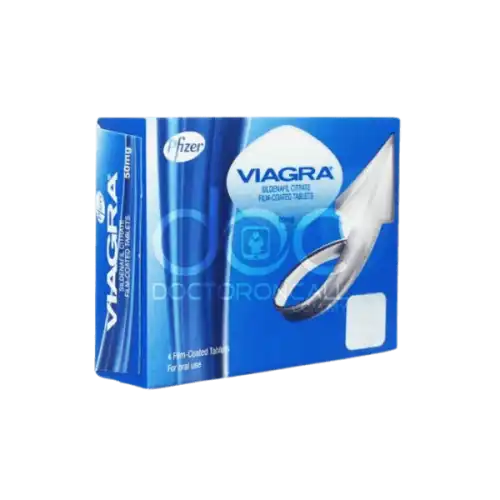ED in Your 20s: More Common Than You Think

Erectile dysfunction is probably not the first thing that comes to your mind for health issues faced by men in their 20s. Although it is often thought of as something only experienced by older men, ED is actually a lot more common in younger men than people realize.
So if you’re someone suffering from this condition, know that you’re not alone and there are resources and solutions to help.
25% of Men Afflicted by ED are Under 40

Erectile dysfunction is the inability to achieve or maintain an erection for sexual intercourse. It’s an often sensitive topic to discuss, but it’s important to know that many men experience this condition as they get older.
However, it should also be noted that younger men can be afflicted as well. Studies show that around 25% of men with ED are under the age of 40. As such, it is vital to spread awareness and lessen the stigma around erectile dysfunction in young men.
Common Causes of ED in Younger Men
ED in younger men can often be attributed to both psychological and physical factors.
Anxiety, Stress, and Depression
Mental health can be a huge factor in impeding your sexual performance. This is why it’s important to open up about your concerns with either your loved ones or mental health professionals to try and alleviate some of the pressure that may contribute to ED.


Lifestyle Choices
Lifestyle choices like smoking, excessive alcohol consumption, and drug use negatively impacting your physiology. This can lead to lower blood flow which in turn affects sexual performance in men.
Underlying Chronic Conditions
Underlying health conditions such as diabetes, heart disease, and obesity can affect your ability to maintain an erection. It’s crucial to evaluate any symptoms you might have and pursue proper medical evaluation and treatment.

Viagra and Cialis: Helping Hands for ED
For those looking for medical solutions to manage ED, Viagra and Cialis are two options frequently recommended by healthcare professionals.
Viagra

Viagra 50mg Tablet 4s (Strip)
SGD $48.43
2709 people have already bought this
Viagra, a brand name for the generic sildenafil, has been a staple method in combating erectile dysfunction. It’s meant to be taken at least thirty minutes before any sexual activity, and can be effective for up to four hours.
Cialis

Cialis 20mg Tablet 8s (Box)
SGD $95.18
1937 people have already bought this
Cialis, generically known as tadalafil, boasts a longer duration of action (up to 36 hours) that provides you with more spontaneity for any midnight activities. It can be taken as a daily use or as needed, providing a flexible choice.
While both medications can be helpful, they are often only available through a prescription. Thus, it is important to consult a healthcare professional before proceeding with any ED medication to account for any possible contraindication or interaction with other medications.
Lifestyle Changes and Psychological Approaches

While ED medications have been proven to be effective, your lifestyle choices can also have a significant impact in improving or worsening your ED.
- Exercise More!
Regular exercise not only enhances blood circulation, but can reduce stress and promote a healthier wellbeing! This should be tacked on with a healthy diet and maintaining a reasonable weight, all of which contribute positively to sexual health. - Taking Care of Your Mental Health
Mental health also plays a significant role in ED, and tackling such issues like anxiety or depression can be the key to not just curing your condition, but improving your wellbeing as a whole.
Moving Forward with Confidence
It may feel frustrating for most to be dealing with something like ED in their 20s, but it is empowering to know that you’re not alone in your struggles, and there are an abundance of solutions available to you.
Be comfortable in discussing erectile dysfunction with your partner, or seek professional help so you can understand and manage your ED effectively. Through a combination of ED medicine such as Viagra and Cialis, as well as modifications to your lifestyle, you can improve your sexual function and lead a healthy, fulfilling, intimate life.
FAQ
ED in your 20s is less common but can occur due to stress, anxiety, poor diet, or health issues. If it persists, it’s important to consult a healthcare provider.
Sudden development of ED can be caused by factors such as stress, anxiety, relationship issues, fatigue, or lifestyle changes. It could also result from underlying health conditions like high blood pressure, diabetes, or hormonal imbalances. Medications, alcohol use, or poor diet can contribute as well. If it persists, it’s important to consult a healthcare provider for a proper diagnosis and treatment plan.
Yes, low self-esteem can contribute to erectile dysfunction (ED). Anxiety, stress, and negative body image linked to low self-esteem can interfere with sexual performance and lead to ED. Psychological factors like worry about performance or feelings of inadequacy can impact sexual function. Addressing self-esteem issues through therapy, relaxation techniques, or counseling can help improve both mental and sexual health.
To address erectile dysfunction (ED) at 20 naturally, consider the following:
- Maintain a healthy weight: Excess weight can contribute to ED and other health issues.
- Reduce stress and anxiety: Practice relaxation techniques like deep breathing, meditation, or mindfulness to manage psychological factors.
- Exercise regularly: Cardiovascular exercise improves blood flow and helps with ED.
- Eat a balanced diet: Include foods that support heart health, such as fruits, vegetables, whole grains, and lean proteins.
- Get enough sleep: Poor sleep can affect hormone levels and sexual function.
- Limit alcohol and smoking: Both can negatively affect erectile function.
You can tell if you’re fully erect if the penis is firm, hard, and stands upright, typically pointing upward or outward. In this state, it should feel stiff and capable of penetration during sexual activity. The level of erection may vary from person to person, but if you notice a significant change in firmness or inability to achieve full erection, it could be a sign of erectile dysfunction. If this happens regularly, it may be helpful to consult a healthcare provider.
At 22, difficulty achieving a full erection can be caused by several factors, including:
- Psychological factors: Mental health issues such as depression or low self-esteem can also play a role.
- Stress or anxiety: Performance pressure, relationship issues, or personal stress can interfere with erectile function.
- Poor lifestyle habits: Lack of exercise, poor diet, smoking, or excessive alcohol consumption can affect blood flow and erectile health.
- Sleep issues: Poor sleep can disrupt hormone levels and impact sexual function.
- Health conditions: Conditions like diabetes, hormonal imbalances, or even medications can contribute to ED.
Erectile dysfunction (ED) can be both mental and physical.
- Physical causes involve medical conditions like diabetes, heart disease, hormonal imbalances, poor circulation, or nerve damage. Lifestyle factors like smoking, alcohol, and lack of exercise can also play a role.
- Mental causes include stress, anxiety, depression, relationship issues, and performance pressure. These psychological factors can interfere with sexual arousal and function.
Yes, it’s possible to experience morning erections (morning wood) but still have erectile dysfunction (ED) during sexual activity. Morning erections are often a sign of healthy blood flow and normal hormonal levels, typically occurring during REM sleep. However, ED can be caused by factors like performance anxiety, stress, or psychological issues that affect sexual arousal during intercourse, even if you experience morning erections.
Yes, overthinking can contribute to erectile dysfunction (ED). Anxiety, stress, and performance pressure caused by overthinking can interfere with sexual arousal and prevent the body from responding normally. This is often referred to as psychogenic ED. Negative thoughts or worries about sexual performance can disrupt the mental and physical processes needed for an erection. Addressing anxiety, practicing relaxation techniques, and seeking support for mental health can help reduce overthinking and improve sexual function.
Regular walking can help improve erectile dysfunction (ED). Walking is a cardiovascular exercise that boosts blood flow, improves circulation, and supports overall heart health, which is crucial for erectile function. It also helps with weight management, reduces stress, and enhances mood, all of which can positively impact ED. While walking alone may not “cure” ED, it can be a beneficial part of a healthy lifestyle to improve erectile function.












